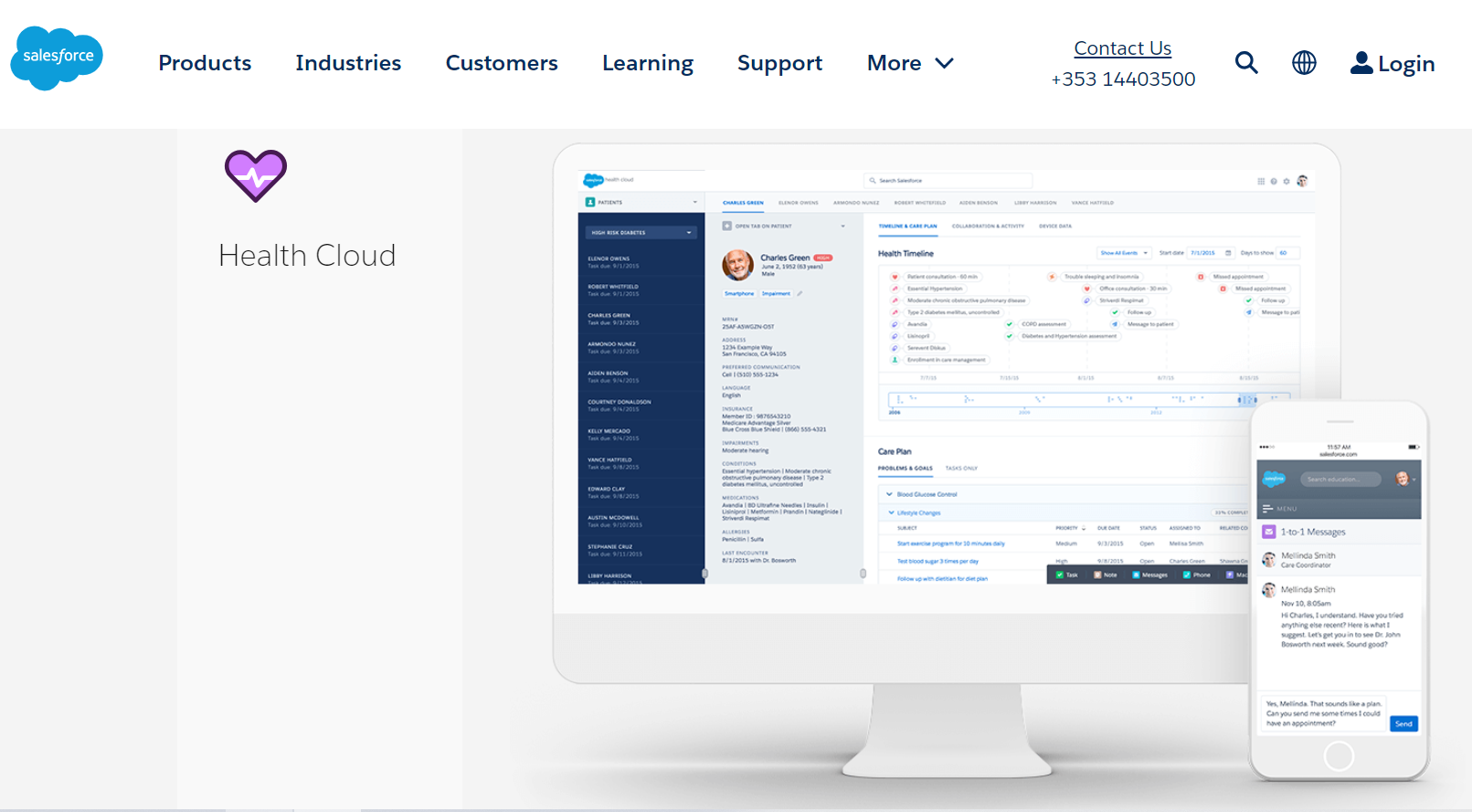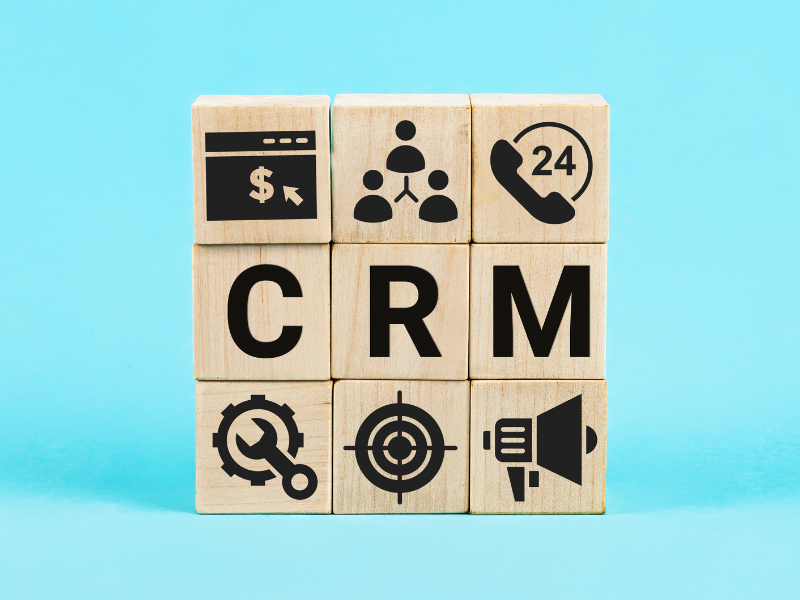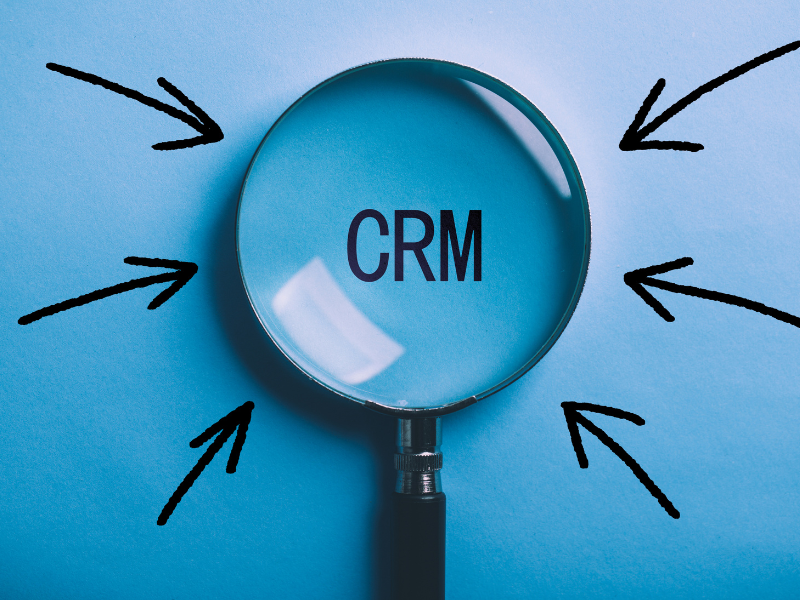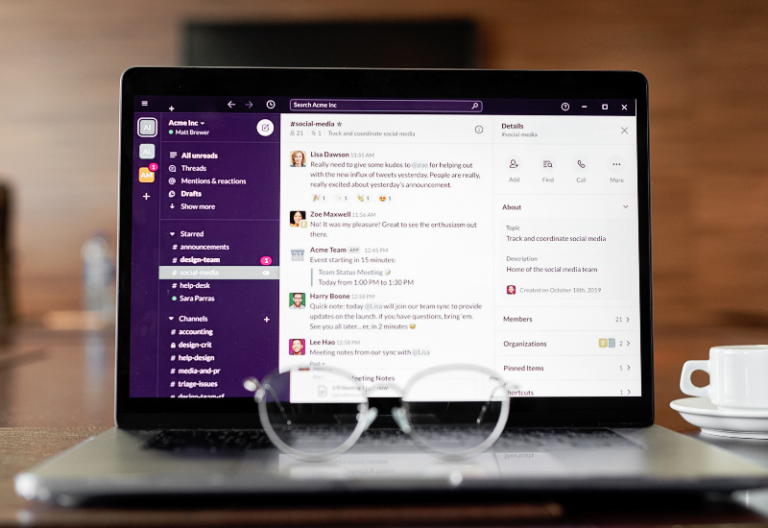Yes. Healthcare providers and other covered entities can use Salesforce to enable HIPAA compliance.
This feature is crucial, especially for healthcare providers that use Salesforce Health Cloud and other healthcare-related services. However, you must carefully configure the CRM platform and follow best practices to achieve HIPAA compliance.
Learn everything you need to know about Salesforce HIPAA compliance here.
Table of Contents

Is Salesforce HIPAA Compliant?
Salesforce is a HIPAA compliant cloud-based software that offers healthcare services such as Salesforce Health Cloud. It provides a business associate agreement (BAA) for organizations that handle protected health information (PHI). However, it’s ultimately the responsibility of your healthcare organization to ensure compliance by following best practices and using the covered services. To be HIPAA compliant, follow these requirements:
- Use Salesforce HIPAA Covered Services
- Do not deploy Salesforce on the customer’s premises
- Operate on Salesforce first-party infrastructure, Hyperforce infrastructure, or other public cloud infrastructure
Salesforce BAA (Business Associate Agreement)
Before using Salesforce for anything related to PHI, ensure you have a BAA in place. This legal document spells out the responsibilities of both parties regarding PHI protection. If you use Salesforce Health Cloud or other healthcare services, initiate BAA signing by contacting your Salesforce Account Executive.
Check this out: Free Business Associate Agreement Template

What Are Salesforce HIPAA Covered Services?
- Salesforce Health Cloud: A platform specifically designed for the healthcare industry, providing a comprehensive view of patient data.
- Salesforce Service Cloud: A customer service solution tailored for healthcare organizations, enabling efficient communication and case management.
- Sales Cloud: A sales management tool that can be customized for healthcare sales processes.
- Marketing Cloud Engagement: A marketing automation platform for personalized patient communication and outreach.
- Experience Cloud: A platform for creating personalized digital experiences and enhancing patient engagement and communication.
- Tableau Cloud: Business intelligence software for data visualization (note: must comply with specific usage restrictions).
- Einstein Services: AI-powered services for analytics, insights, and recommendations in healthcare.
- Digital Process Automation: Tools for automating business processes, improving efficiency in healthcare operations.
- Mulesoft Services: Integration tools for connecting various systems and applications in healthcare environments.
- Slack Enterprise Plans: Communication tools designed for collaboration, with specific requirements for handling PHI.
- B2B and B2C Commerce: Platforms for managing e-commerce transactions and supporting the healthcare marketplace.
- CRM Analytics: Formerly Tableau CRM, offering analytics for customer relationship management in healthcare.
Salesforce and HIPAA Compliance: Steps and Best Practices
Ready to get started? Here’s a quick guide to making Salesforce HIPAA compliant:
1. Choose the right Salesforce Services
Not every Salesforce service is covered under the BAA. Use options like Salesforce Health Cloud and Salesforce Service Cloud, which can be HIPAA compliant. Always check Salesforce’s documentation to confirm which services are approved for handling PHI and to implement the proper safeguards when using Salesforce services.
2. Request a BAA
Reach out to your Salesforce account representative to get the ball rolling on the BAA. Review the terms carefully so you fully understand your obligations. Make sure that the BAA is signed by you and Salesforce.
3. Configure security settings
Use Salesforce security features when you use Salesforce Health Cloud or any other Salesforce product. Using Salesforce Shield, specifically, can enhance your data protection strategy. Shield is a set of tools that protects enterprises against cybersecurity attacks and helps you comply with HIPAA.
4. Implement strong data security measures
- Use Transport Layer Security (TLS) to encrypt data in transit. For data stored in Salesforce, use encryption features such as Salesforce Shield
- Set up strict access control so only authorized persons can access PHI.
- Use Salesforce’s audit trail features to let you track who accessed what and when. Monitor these logs for suspicious activities.
- Define roles that follow the principles of least privilege, meaning users should only access data necessary for their jobs
- Enable two-factor authentication to add an extra layer of security
5. Train your staff
Education is key. Help employees to know what is considered PHI and why protecting it is important. You should also provide clear guidelines on how to handle data securely and report potential security incidents. Everyone should understand their role in maintaining compliance.
6. Develop an incident response plan
Create a plan for responding to data breaches or security incidents. Your plan should include incident identification, investigation procedures, and notification requirements. HIPAA provides breach notification requirements, which include informing affected individuals and the Department of Health and Human Services (HHS).
7. Keep monitoring and improving
HIPAA compliance isn’t a one-time effort; it’s ongoing. Regularly review your policies to make sure they align with the current regulations. HIPAA may be updated from time to time, so adapt your practices as needed.

Benefits of Using Salesforce in Healthcare
The benefits of having a HIPAA compliant CRM software solution are myriad. Salesforce in healthcare can be a game changer for the following reasons:
Centralized data management
Salesforce provides a single, secure platform for managing patient data. This centralization helps healthcare providers collaborate better. With comprehensive patient histories at their fingertips, they can make more informed decisions.
Improved patient engagement
Salesforce comes equipped with tools for personalized communication, allowing you to engage patients effectively. Automated reminders, personalized messages, and tailored content can improve the patient experience and encourage patients to stick to treatment plans.
Enhanced compliance
With its security features and compliance tools, Salesforce can help you manage your compliance obligations more effectively. Regular updates and audits can also help you adapt to changing regulations and maintain compliance.
Scalability
Salesforce offers analytics capabilities that help you extract valuable insights from patient data. By tracking trends and measuring the effectiveness of interventions, you can continually improve healthcare services.
Use a HIPAA Compliant Healthcare CRM
Salesforce has what it takes to be HIPAA compliant, but it requires intentional effort to achieve this goal. To ensure compliance, follow best practices and use HIPAA Covered Services such as Salesforce Health Cloud and Salesforce Service Cloud. Salesforce’s advantages in healthcare go beyond compliance. It offers tools to improve care, operations, and innovation.
Streamline customer relationship management with a HIPAA-compliant fax solution that lets you fax directly from your CRM system. iFax offers tailored fax integrations through custom APIs, enhancing workflow efficiency.






